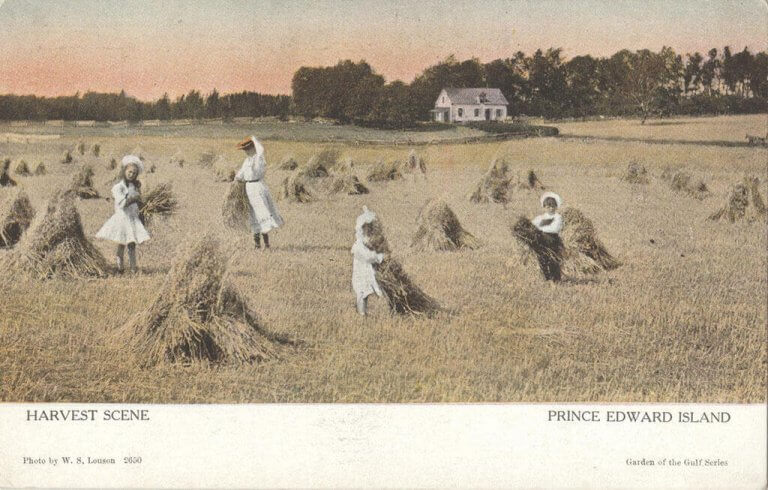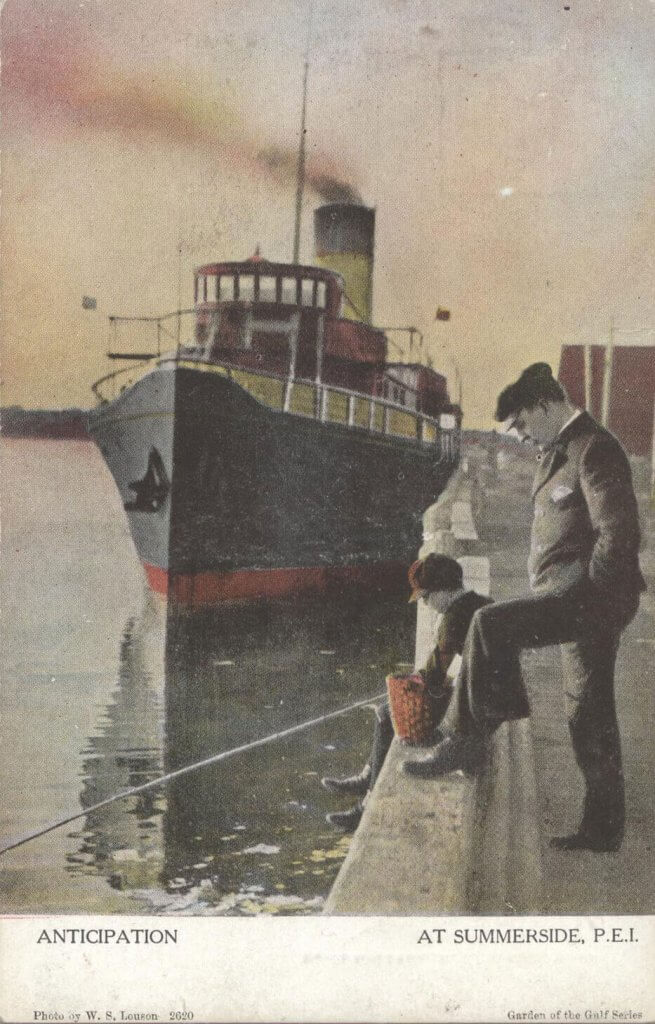
The Edwardian Island Through a Camera’s Lens-The Landscape Images of W.S.Louson

In the early twentieth century, there was an explosion of interest in photography. Although the technology had existed for more than 50 years, improvements in equipment and processes made picture taking accessible for amateurs at the beginning of the Edwardian era. One of those amateurs was William Steele Louson (1860-1921) whose photographs of P.E.I. introduced the province to the world.
Louson came to Charlottetown from Montreal in 1900. As an agent for a wholesale firm, he travelled throughout the province. From that opportunity he developed an appreciation for the natural beauty of his adopted home. Beginning with photos for his friends and family, interest in his images led to publication in the Prince Edward Island Magazine, the Montreal Standard, The Boston Globe and a number of other journals and books.
Louson’s images have a consistent style. Generally shunning the public buildings and street scenes of his photographic contemporaries, his photos show a pastoral community, one which often featured trout streams, birch groves and daisies. People, when present, are merely punctuation for the message of the landscape.
Only a limited number of original prints and negatives have survived and many of the best examples of his work exist only as postcards. The period before the Great War was the golden age of the postcard with more than 500 different images of P.E.I. for sale by local and national publishers. Louson is one of the very few photographers identified and given credit for their images as publishers frequently republished images without credit to their creators.
As an early advocate of P.E.I. tourism, Louson freely made his images available for this purpose. The Island that he saw through the camera lens became the image that tourists saw through books, magazines and postcards and one that they shared with others. William Steele Louson’s view of the Island showed it as a series of landscapes-images that dominated how the Island was depicted for more than half a century and which still resonate as pictures of a gentle island.
The exhibition is curated by Harry Holman.
